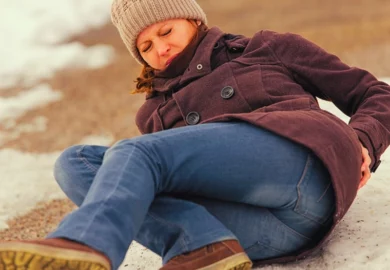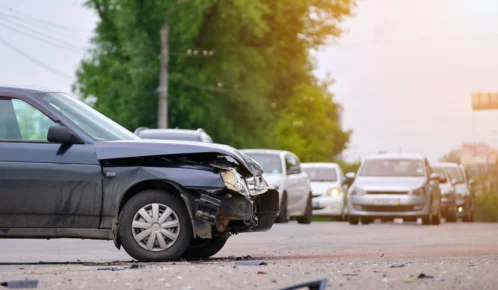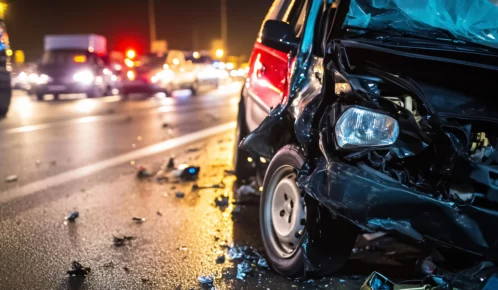Snow and ice are just a way of life during winter in Chicago. Snow and ice can swallow sidewalks, driveways, parking lots, and roadways, leaving many to wonder: can you sue for slipping on ice?
Table of Contents

Under the theory of premises liability, property owners and managers are required to keep their property safe and free from hazards. The failure to do so can result in liability for any injuries sustained in a slip and fall accident on the property.
Filing a Slip and Fall on Ice Lawsuit: Can You Sue for Slipping on Ice?
If you have been injured in a slip and fall on ice on another person’s property, such as a parking lot or a city park, pursuing legal action can be an uphill battle. The Illinois Appellate Court held in Hornacek v. 5th Avenue Property Management that an Illinois property owner can only be held liable for slip and fall injuries sustained if the property owner aggravated the natural accumulation of ice, snow, or water in a way that was unnatural. In other words, a property owner will not be liable for the failure to remove natural accumulations of snow or ice. If, however, the landowner or a hired contractor creates an unnatural accumulation of snow and ice, liability may attach as a result of failing to use ordinary care.
Furthermore, the Illinois Natural Accumulation Rule and the Snow and Ice Renewal Act of 2005 protect property owners from lawsuits if they shovel natural accumulations of snow and ice. If, however, there is a defect on the property, such as a cracked rain spout or a poorly maintained parking lot, that creates an unnatural accumulation of snow and ice, the property owner could be liable for any slip and fall on ice accidents and injuries.
Can I Sue the City of Chicago for a Slip and Fall Accident?
Publicly-owned recreational facilities, such as city parks, have broad immunity from slip and fall liability under the Illinois Supreme Court’s decision in Moore v. Chicago Park District. In this case, the Chicago Park District had taken several measures to move the snow and ice, including plowing, shoveling, and salting the parking lot. As a result, a small pile of snow had gathered at the edge of the parking lot, which caused a woman to fall. She suffered a broken leg and died as a result of brain damage suffered during surgery to repair the broken leg. The court held that the city could not be held liable under Section 3-106 of the Local Governmental and Governmental Employees Tort Immunity Act.
Lawsuits based on snow and ice slip and fall accidents involve a number of complex legal and factual issues. Accordingly, it is crucial to consult with a skilled Chicago personal injury attorney like those at Ankin Law.
Who Is Liable for a Slip and Fall on Ice?
If you slip and fall on private property, you may have a claim against the property owner if he or she created an unnatural accumulation of snow or ice. If you slip and fall on public property, you may not be able to pursue a legal claim against the government entity. Under the theory of premises liability, property owners and managers are required to keep their property safe and free from hazards. The failure to do so can result in liability for any injuries sustained in a slip and fall accident on the property. A property owner will not be liable for the failure to remove natural accumulations of snow or ice. If, however, the landowner or a hired contractor creates an unnatural accumulation of snow and ice, then liability may attach as a result of failing to use ordinary care.
Slip and Fall on Ice Settlements
There is a limited amount of time during which you can file a legal claim for snow and ice-related injuries. If you have been injured in a slip and fall on ice, you may be able to collect monetary damages by filing a personal injury lawsuit. The time limitation – or statute of limitations – on when you can file a slip and fall lawsuit varies depending on where the slip and fall accident took place.



